2012 archives
book group 63: October 1, 2012 to November 1, 2012 (one month)
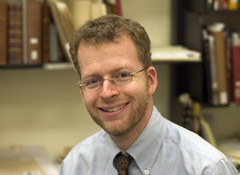
- John Pollack
Poetry, memoir, autobiography, historical narrative, artist book—all of these labels, and others, may usefully be applied to our central text for the month, The Way to Rainy Mountain. First published in 1969, Momaday's elegant little book was one of the key texts in what has been called a "Native American Renaissance." In this online book group, we will work follow Momaday's literary and personal journey. Topics we will address include: oral and written traditions; forms of autobiography; meanings of religion; and the roles of individuals within and without communities. In addition to reading Momaday, we will read a small number of short stories, poems, and essays by contemporary Native American authors including Leslie Marmon Silko, Louise Erdrich, and others. We will conclude by watching Sherman Alexie's film Smoke Signals. Participants will need to purchase their own copy of Momaday's The Way to Rainy Mountain. Other readings will be made available online through PDF documents.
John Pollack is Library Specialist for Public Services in Penn's Rare Book and Manuscript Library. His scholarly work focuses on early America, and he has published on authors including Benjamin Franklin and Samuel de Champlain.
book group 64: December 3-17, 2012; January 3-17, 2012 (one month)
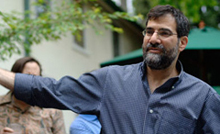
- Al Filreis
Many deem John Ashbery to be the greatest (finest poetically and most influential) living American poet – and the leader of this month-long discussion of Ashbery's poetry is one of them. No preparation is necessary. Participants might like to purchase a copy of Ashbery's selected or collected poems, but this is not a requirement. Your discussion leader will send by email copies of poems we'll be discussing. Note that John Ashbery will be a Kelly Writers House Fellow in the spring of 2013.
Al Filreis, Kelly Professor and Faculty Director of the Writers House, has led many online book groups and has taught several all-online semester-long courses. He has won many teaching awards (Lindback, Ira Abrams) and was named the Pennsylvania Professor of the Year by the Carnegie Foundation. He produced and hosts several podcasts, writes several blogs, and maintains vast web sites on modern poetry, the cold-war culture of the 1950s, and the Holocaust. He has published four books including, most recently, Counter-Revolution of the Word: The Conservative Attack on Modern Poetry. Here is Al's web site.
book group 65: January 14, 2013 to February 12, 2013 (one month)
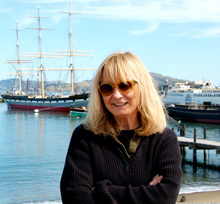
- Val Ross
Our group will discuss two of the more popular films by Woody Allen, one of our most influential and prolific filmmakers. A pioneer of the American personal film, Allen made movies steeped in film history, technically masterful, intellectually ambitious and, despite all this, commercially successful. Exploring European art cinema, satirizing American culture, transforming a genre, or criticizing himself, Allen invariably smartens whatever genre he fixes on, along the way creating great roles for women and reinventing romantic comedy. We will, following Allen, focus on two of our nation's preoccupations, work and sex and how, in Allen's films, these compel us to consider the meaning of love, life, and art.
Valerie Ross is the Director of Critical Writing in the Center for Programs in Contemporary Writing. Along with her work with writing, she also teaches courses on American film auteurs for Penn's Cinema Studies Program.
book group 66: March 11, 2013 to March 22, 2013 (ten days)
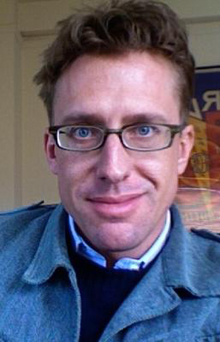
- Eric Jarosinski
Literally a "carrying over," metaphor does not simply describe the world, but creates it. While this is perhaps a radical proposition, in this course we will ask how metaphor's centrality to rhetoric and literary works commonly crosses over into everyday life, often in unexpected and unsettling ways. One of the most interesting authors for exploring the complex intertwining of language and experience is Vladimir Nabokov. His fiction challenges us to see the world differently, often by making our own act of seeing and reading a key part of the narrative. As a group, we'll focus on Nabokov's short novel Transparent Things, which tells the story of a writer, a proofreader, and a fateful trip to Switzerland by weaving, unraveling, and ultimately reweaving a tangled web of language, history, and memory. Other readings will include excerpts from Lakoff and Johnson's classic study Metaphors We Live By and Paul de Man's influential essay "The Epistemology of Metaphor."
Eric Jarosinski is an assistant professor of German at the University of Pennsylvania, where his research and teaching focus primarily on 20th-century literature, culture, and theory. He is the author of several essays examining the intersections of language, politics, and aesthetics in Weimar Germany, and he is currently completing a book project, Cellophane Modernity, which examines metaphors of "transparency" in modern German architecture, literature, and critical theory. The recipient of the School of Arts and Sciences Dean's Award for Distinguished Teaching by an Assistant Professor (2012), he regularly teaches courses on Marx, Nietzsche, and Kafka.
book group 67: April 8, 2013 to April 19, 2013 (ten days)
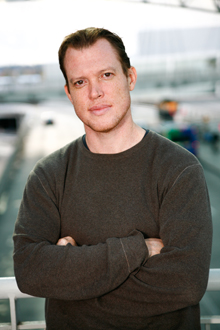
- Rolf Potts
Fiction and nonfiction writers alike can learn from the ways well-written screenplays create structure and characters that keep the audience emotionally involved. Though seemingly effortless on screen, these story elements are the result of precise creative decisions on the part of the writers. As a group we'll examine how two Stephen King novellas, "The Body" and "Rita Hayworth and the Shawshank Redemption," were transformed into Stand By Me (dir. Rob Reiner, 1986) and The Shawshank Redemption (dir. Frank Darabont, 1994). Starting with King's novellas, we'll examine how structure and characters are utilized to keep the reader engaged – and we'll discuss how these story elements are transformed to serve the screenplay form. We'll also note how elements of the screenplay again change in significant ways once the movie is shot and edited. Using the specifics of these two story-to-screen adaptations, we will examine how the universals of structure and character can apply to more than just screenplays.
Rolf Potts was the 2011-12 ArtsEdge Writer-in-Residence at Penn, and he has taught nonfiction and screenwriting at the Paris American Academy creative writing workshop since 2005. His essays and reportage have appeared in venues such as the New Yorker, The Atlantic, National Geographic Traveler, Salon, Slate, the New York Times Magazine, National Public Radio, and the Travel Channel. He is the author of two books, Vagabonding and Marco Polo Didn't Go There, and his essays have been anthologized in more than twenty writing collections, including Best American Travel Writing and Best Creative Nonfiction. More information available at his author website, RolfPotts.com.
book group 68: May 13, 2013 to May 23, 2013 (ten days)
We will read the 1970's vintage Carver story and the recent story by Nathan Englander entitled "What We Talk About When We Talk About Anne Frank". Both are superb and each could support its own 10 day discussion. We will read both and discuss how Englander feeds from and perhaps vaults over Carver and in so doing creates his own world and his own work of art. Like the original Carver version, Englander's has two couples, but they're Jewish, one Orthodox from Israel visiting their ultra assimilated friends who live in Miami. Englander's story deals not only with the dynamics of couples, but also addresses questions about Jewish identity and the Holocaust.
Al Filreis, Kelly Professor and Faculty Director of the Writers House, has led many online book groups and has taught several all-online semester-long courses. He has won many teaching awards (Lindback, Ira Abrams) and was named the Pennsylvania Professor of the Year by the Carnegie Foundation. He produced and hosts several podcasts, writes several blogs, and maintains vast web sites on modern poetry, the cold-war culture of the 1950s, and the Holocaust. He has published four books including, most recently, Counter-Revolution of the Word: The Conservative Attack on Modern Poetry. Here is Al's web site.
David Roberts is a member of the Kelly Writers House Advisory Board, a denizen of the KWH book groups and when he is not reading, works in Manhattan in the investment business. He is a 1983 graduate of the University Of Pennsylvania.
book group 69: May 28, 2013 to June 6, 2013 (ten days)

- Patrick Bredehoft
"I'm waiting in this cell because I have to know... have I been guilty
all this time?"
~Pink
Frequently considered among the great concept albums, Pink Floyd's The Wall is also one of the most commercially successful rock operas ever produced. Recorded in 1979 when the band was reeling from financial difficulties and internal strife, it has been performed on stage innumerable times over the past 30 years, as well as being recorded as a feature-length film and envisioned as a Broadway musical. The album explores an array of modern themes: the dangers of ideology as a corrupting force, the terror of a solitary life, the and the power of outside events in determining our personal perceptions. Even as it reflects the horrors of World War II and the ensuing Cold War, the album pushes listeners to reflect on issues of celebrity and individual identity, raising questions that are still compelling more than three decades after its conception. Using the album's lyrics as our source texts (focusing on one or two new songs each day), we will discuss the ways in which The Wall holds significance for listeners today.
Patrick Bredehoft is the Director of the Penn Alumni Interview Program, which is based out of the Office of Alumni Relations. His department is responsible for coordinating alumni interviews for prospective Penn students around the world, coordinating the efforts of thousands of alumni volunteers. Before coming to Penn, Patrick was an IB English teacher and college counselor at a small boarding school located outside of Istanbul, Turkey, where he also served as Head of Foreign Languages. From 2010-2012, he worked for Penn's Undergraduate Admissions Office, where he functioned as the liaison between the UGAO and the Kelly Writers House. Patrick holds a BA in Literature & Creative Writing from Dartmouth College and a Masters of Arts in Education from Lesley University.
book group 70: June 24, 2013 to July 3, 2013 (ten days)
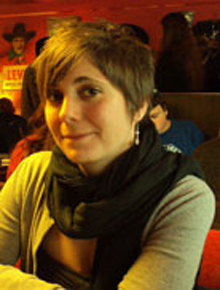
- Jamie-Lee Josselyn
**For Prospective Students Only!**
How do writers create themselves on the page? Is it the writer's job to transport her reader into an alternate time and place through the creation of scenes and the genesis of thoughtful reflection, or, instead, to make her reader aware of the constructed nature of writing itself? Is it possible – or even preferable – to achieve all of this at once? We will spend the first part of our time together discussing excerpts from memoirs by Lorene Cary and Paul Hendrickson, who are both much-loved nonfiction writing teachers at Penn. Just when things start to make sense, we will transition to writing by Charles Bernstein and Kenneth Goldsmith, who are called "experimental" by some and "uncreative" by others – and who are also adored in the Kelly Writers House community.
This special 10-day group is the first of its kind: a chance for prospective undergraduates to read and think together while exploring the amazing variety of writers who teach in our Creative Writing Program. Consider this a glimpse into what four years at Penn can be.
Jamie-Lee Josselyn is the Associate Director for Recruitment at Penn's Center for Programs in Contemporary Writing, a nonfiction writing instructor in the Creative Writing Program, and has worked at the Kelly Writers House as the Assistant to the Faculty Director and Coordinator of the Writers House Fellows Program. She has taught creative nonfiction writing at St. Paul's School's Advanced Studies Program in Concord, New Hampshire, at the Wharton School's Advanced Management Education Conference, and in the Philadelphia public school system. She has been a teaching assistant for Al Filreis in many courses on contemporary literature. Her writing has been published in The Sun, The Philadelphia Inquirer, LOST Magazine, in the six-word memoir anthology It All Changed in an Instant, and elsewhere. Jamie-Lee has a BA from the University of Pennsylvania and an MFA from Bennington College where she was the nonfiction editor of The Bennington Review.